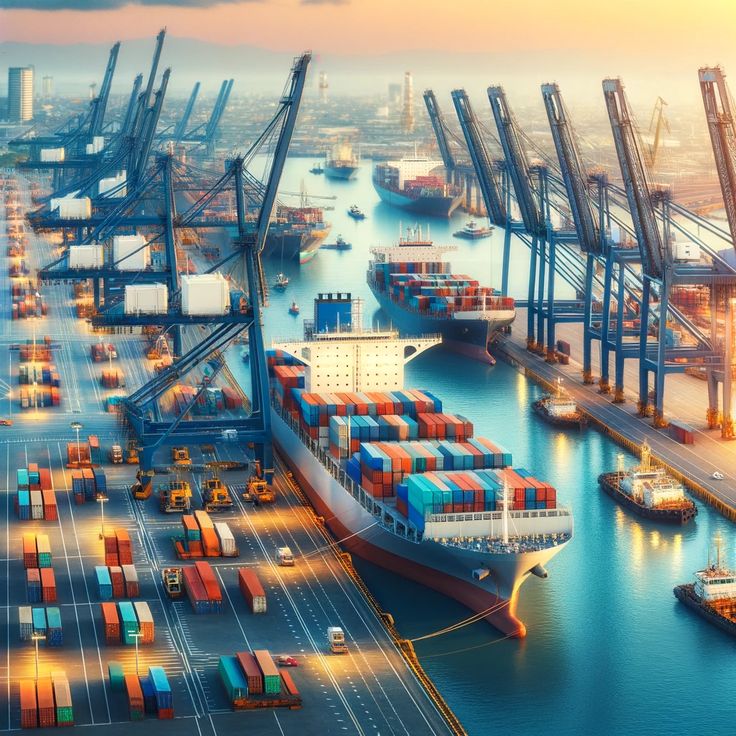Blog
Emerging Technologies Revolutionizing Logistics: The Future is Here
Emerging technologies are transforming the logistics sector. With it comes greater transparency, higher efficiency, and enhanced customer satisfaction. Innovations such as AI are optimizing routes and making demand forecasting smarter, IoT devices for real-time tracking of shipments, and blockchain technology literally changing logistics by creating unalterable, secure records that offer trust and minimize fraud. There is autonomous vehicle deployment to smooth the process of last-mile delivery while cutting costs and reducing time. Robotics and automation in warehouses speed up the order fulfillment process. These developments are changing logistics, enabling companies to respond to shifting market requirements and deliver top-notch service.
Sustainability in Logistics: Green Practices for a Greener Future
Sustainability in logistics is turning out to be the new focal point of business for companies seeking to minimize their environmental footprint without losing any efficiency. This has helped reduce carbon emissions by employing green practices like fuel-efficient vehicles, route optimization in deliveries, and the use of renewable energy sources in warehouses. Companies are also embracing electric or hybrid fleets and reusable packaging to avoid waste. Digital tools such as predictive analytics and IoT can help in optimizing resource utilization, thereby decreasing unnecessary fuel consumption and emission. Companies sharing transportation resources through collaborative shipping further decreases environmental footprints. All these efforts are paving the way for a greener and more sustainable future of logistics.
The Role of Artificial Intelligence in Modern Supply Chain Management
Artificial intelligence (AI) is changing the game in modern supply chain management through efficiency, accuracy, and decision-making. AI-based systems analyze huge amounts of data to predict demand, optimize inventory levels, and detect potential disruptions before they happen. Machine learning algorithms improve route planning, thus reducing delivery times and fuel consumption. AI-enabled automation in warehouses streamlines operations, from sorting to packaging, improving productivity and reducing human error. Chatbots and virtual assistants enhance customer service by providing real-time updates and addressing queries efficiently. By enabling predictive analytics, real-time tracking, and automation, AI is revolutionizing supply chains, making them more agile, resilient, and customer-focused.
Blockchain in Logistics: The Single Innovation Revolutionizing Transparency and Efficiency
Blockchain technology in logistics is revolutionizing supply chain operations in terms of increasing transparency, efficiency, and security. This technology would create immutable and decentralized records to ensure real-time visibility through all stages of the supply chain, from manufacturing to final delivery. It thus eradicates information silos and reduces fraud and discrepancies. Smart contracts automate payments and compliance checks, thus avoiding delays and paperwork. It also improves traceability, which helps businesses and consumers trace the origin of goods and check their authenticity. Blockchain, therefore, sets a new standard in logistics efficiency by streamlining operations and building stakeholder trust.
Top Logistics Trends To Watch in 2024
With innovative trends that enhance efficiencies and adaptability, the sector of logistics in 2024 is going to be totally shaped. Sustainability will be seen as the top priority that companies adopt, such as electric vehicles and reusable packages. Artificial intelligence and machine learning will further optimize different supply chain operations, especially demand forecasting and route optimization. Automation in warehouses will lead to robotics, where both order accuracy and speed improve. Blockchain technology will establish transparent trust across supply chains; IoT devices will enable the capability to track things in real-time and predict maintenance issues on the fly. Autonomous delivery will pick up pace with adoption from drones and self-driving trucks in last-mile delivery revolution. These trends, it would seem, point out commitment from the industry in embracing innovation and sustainability.


